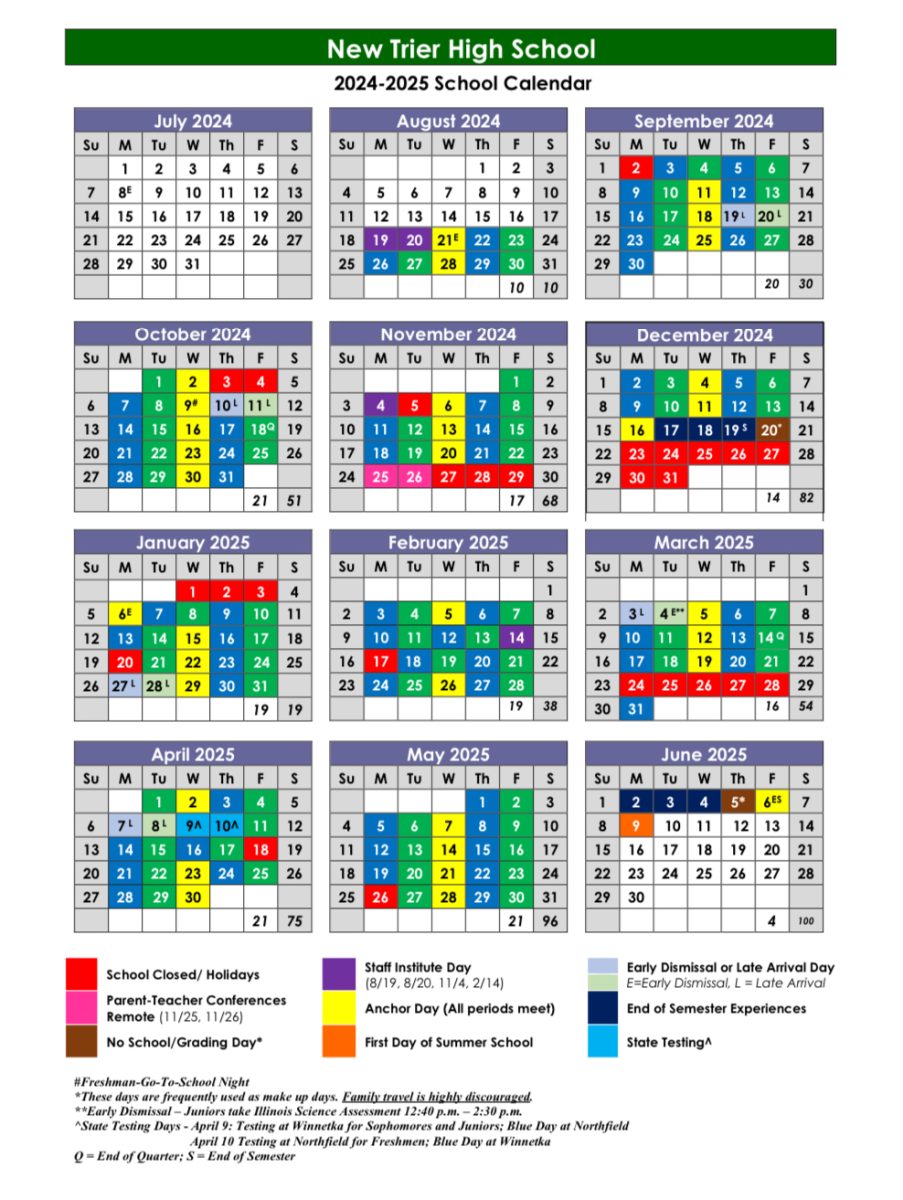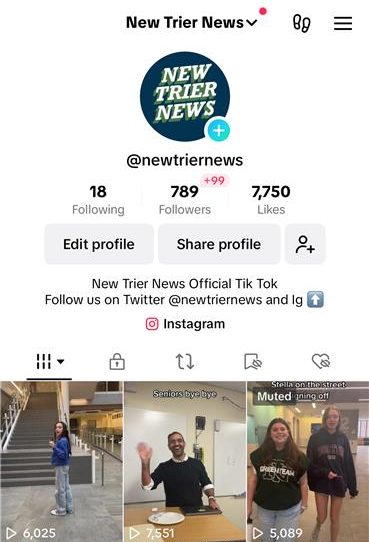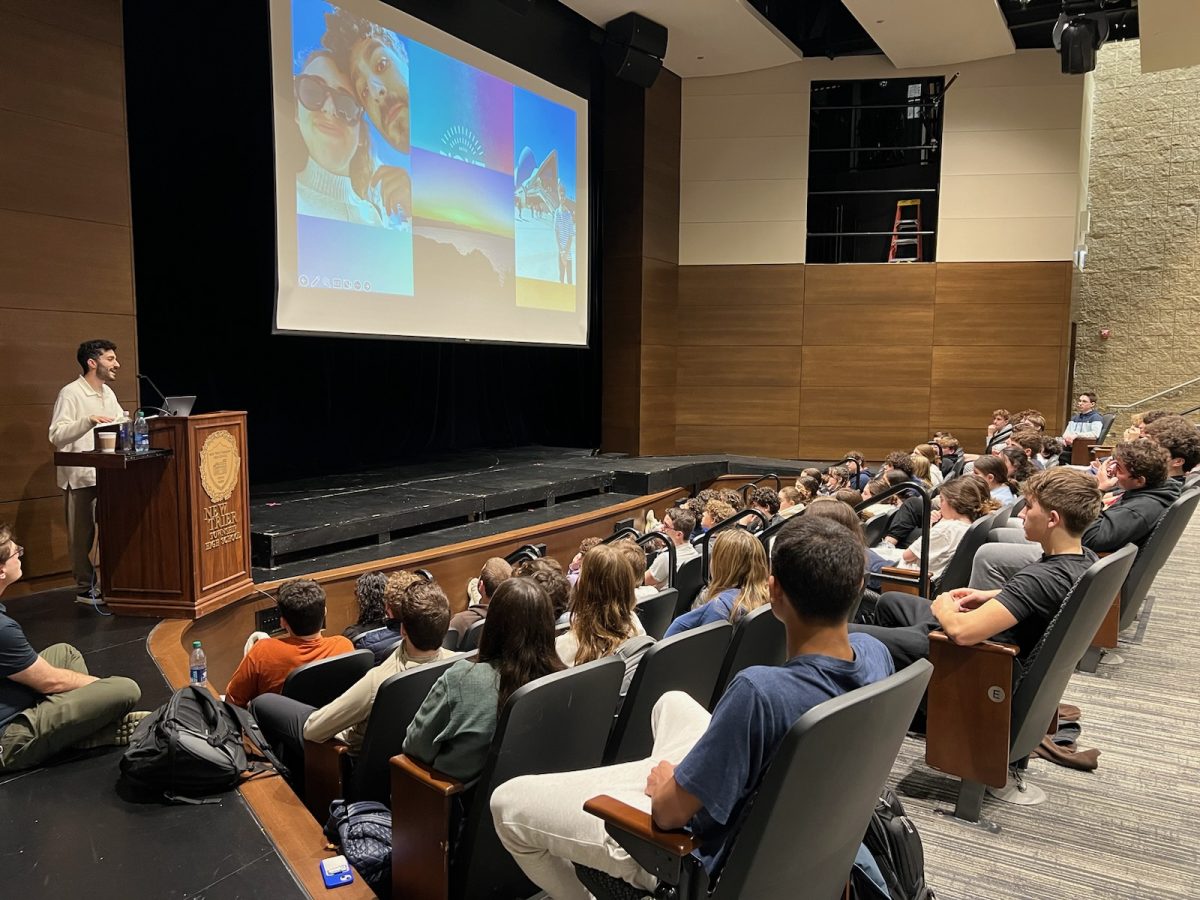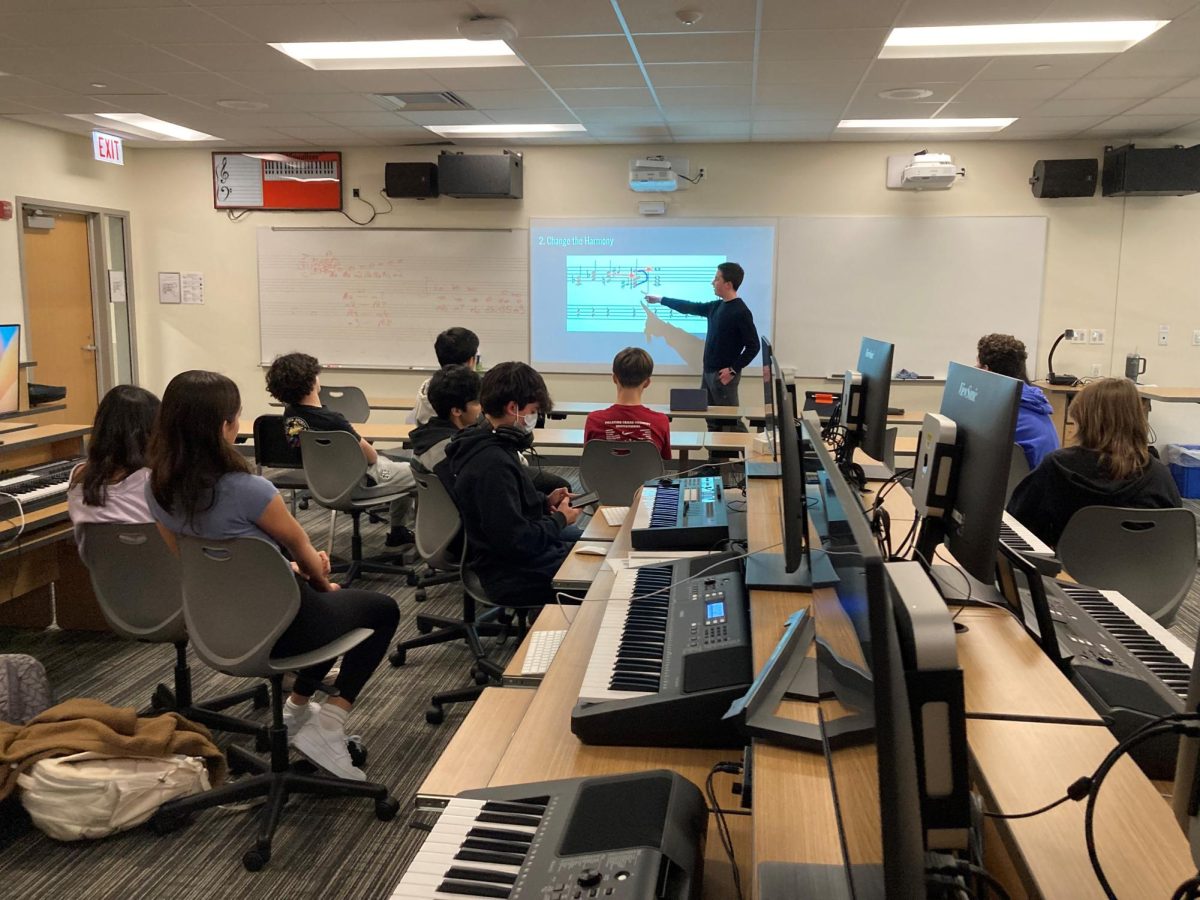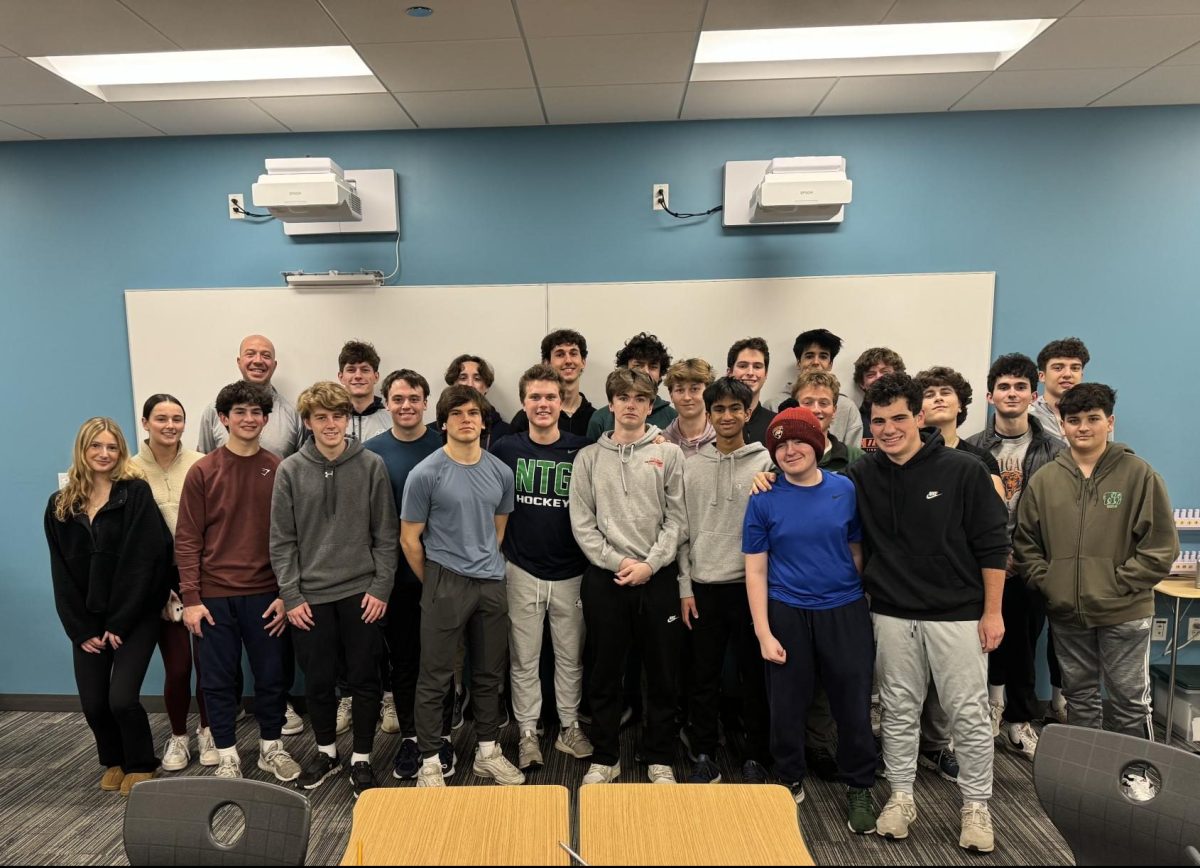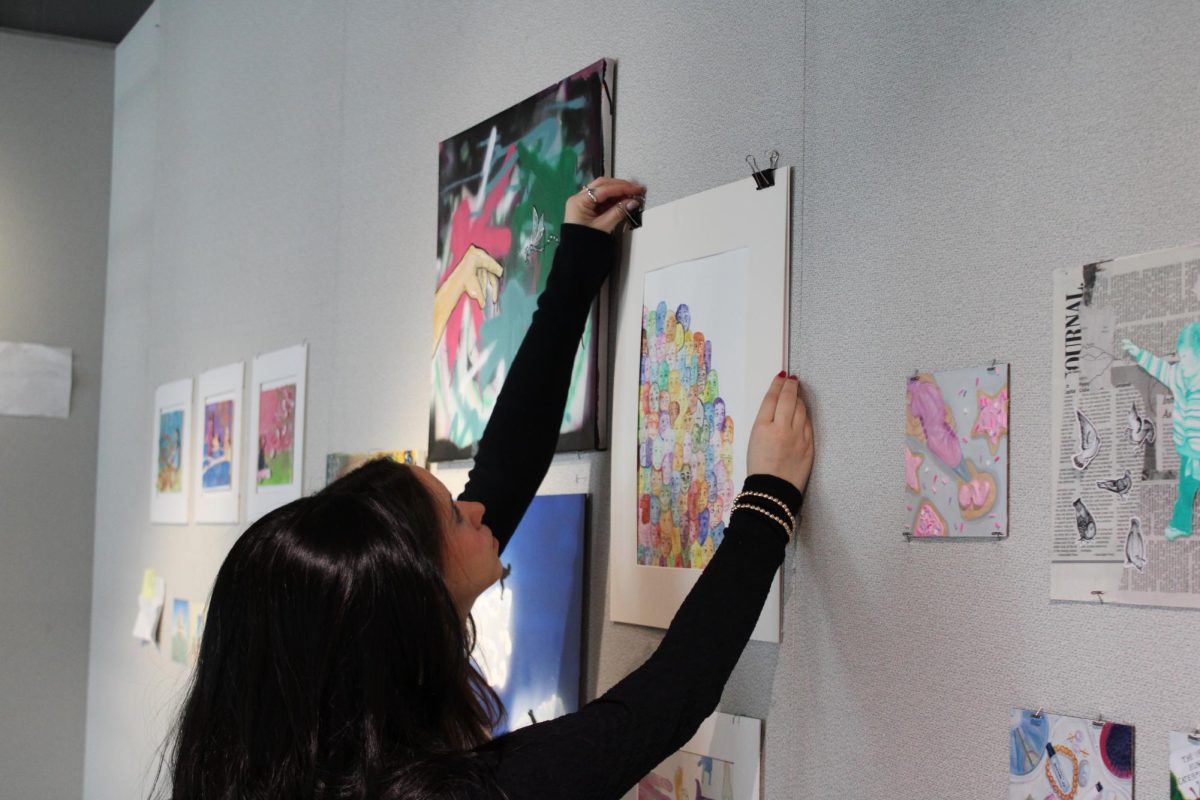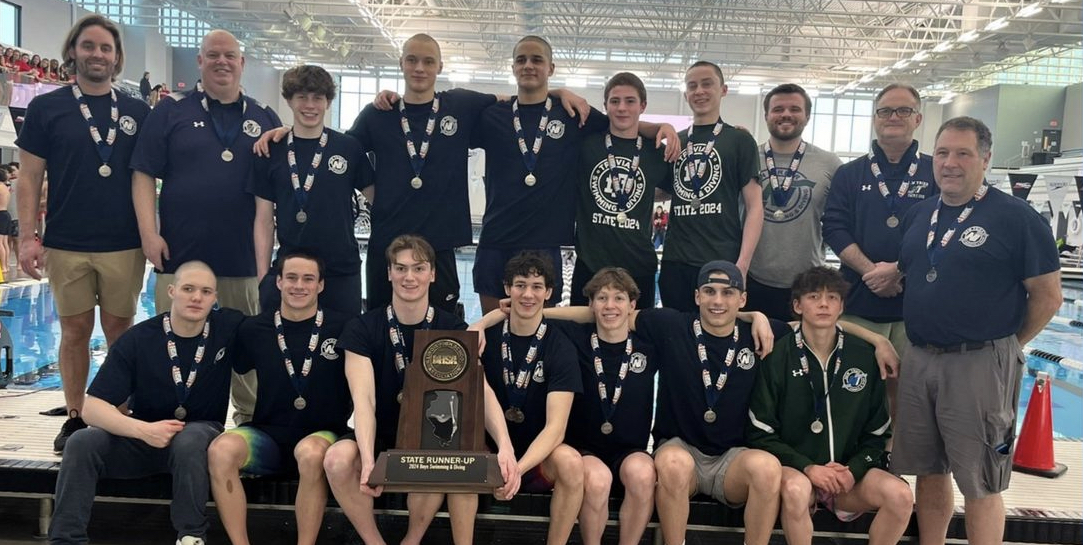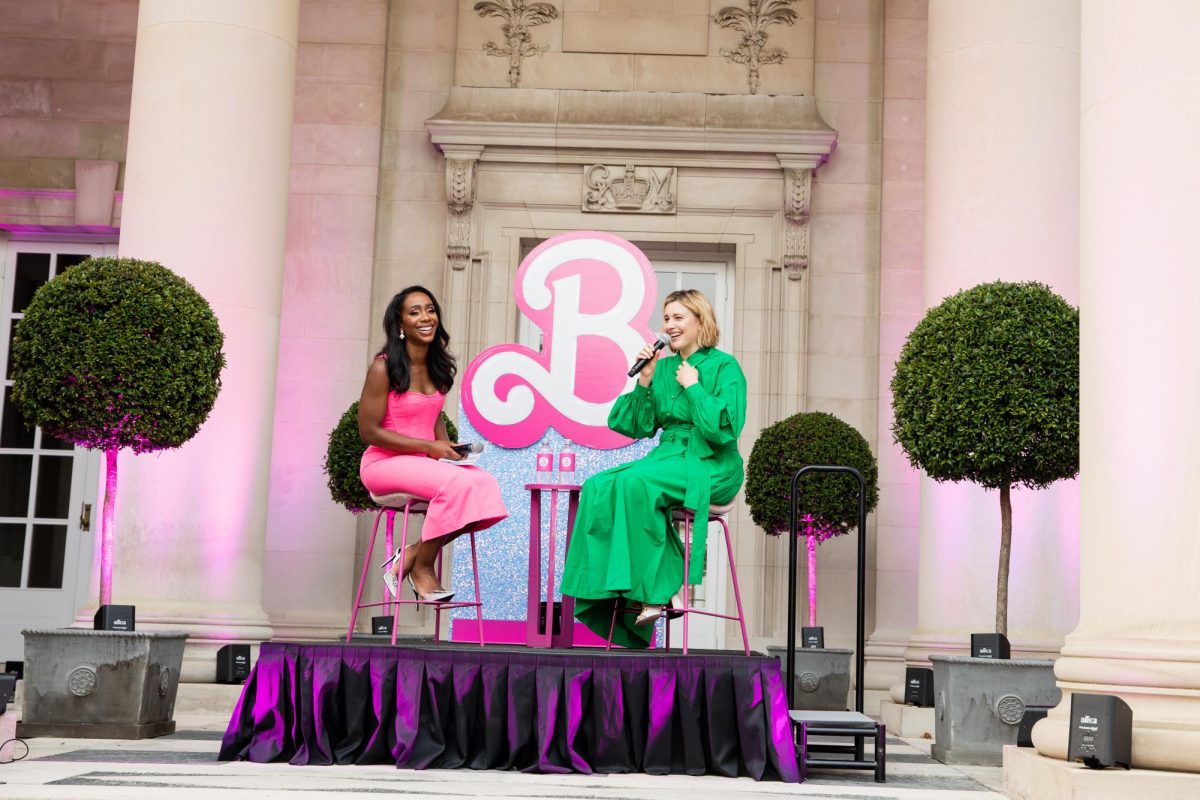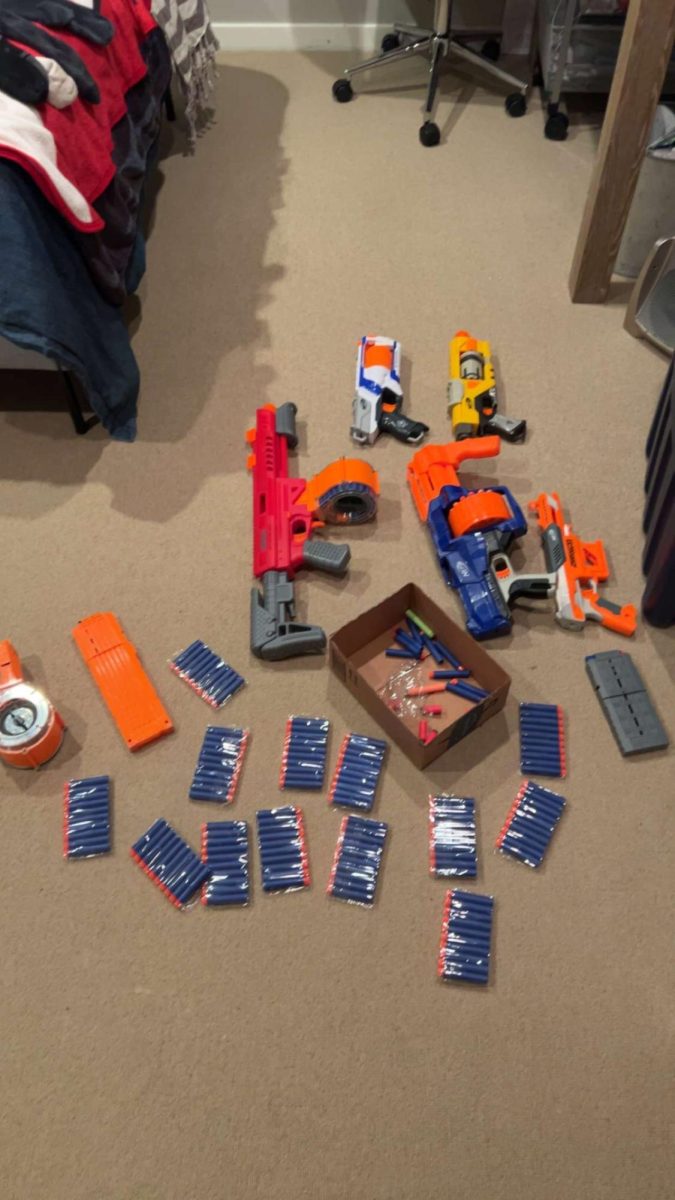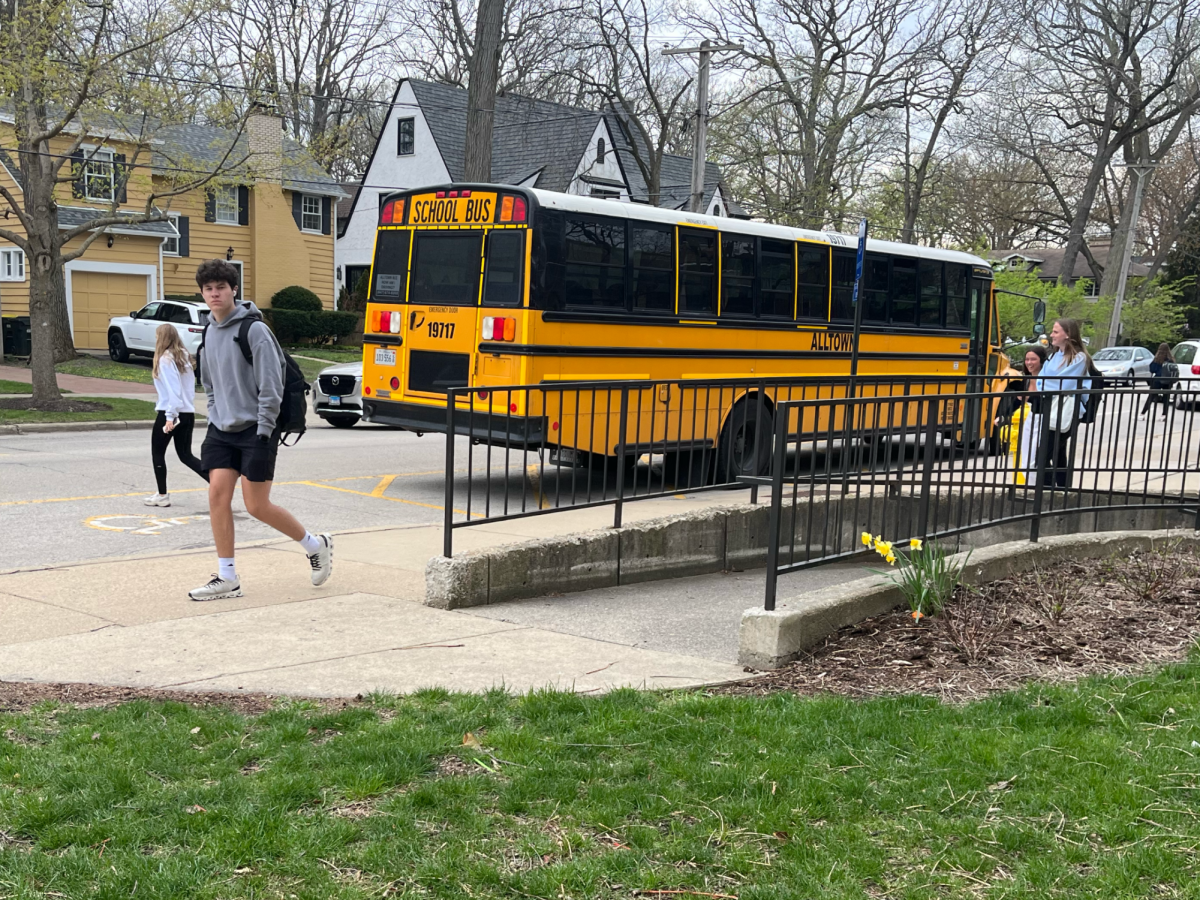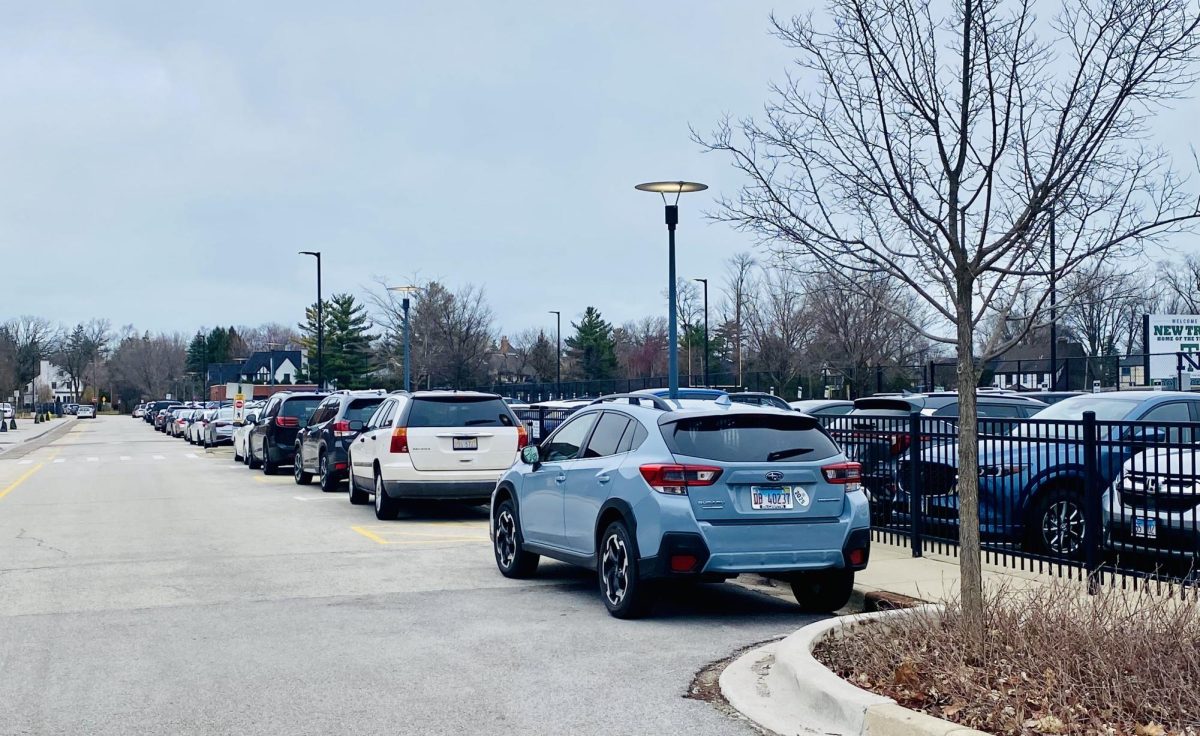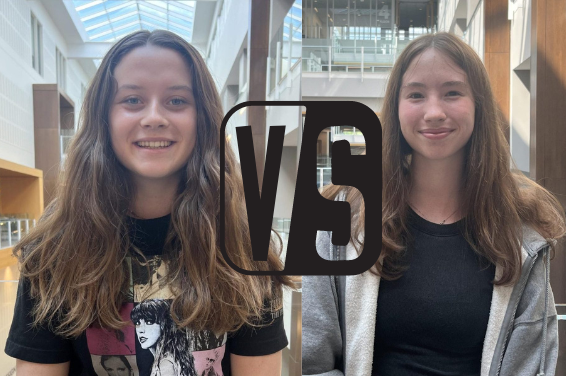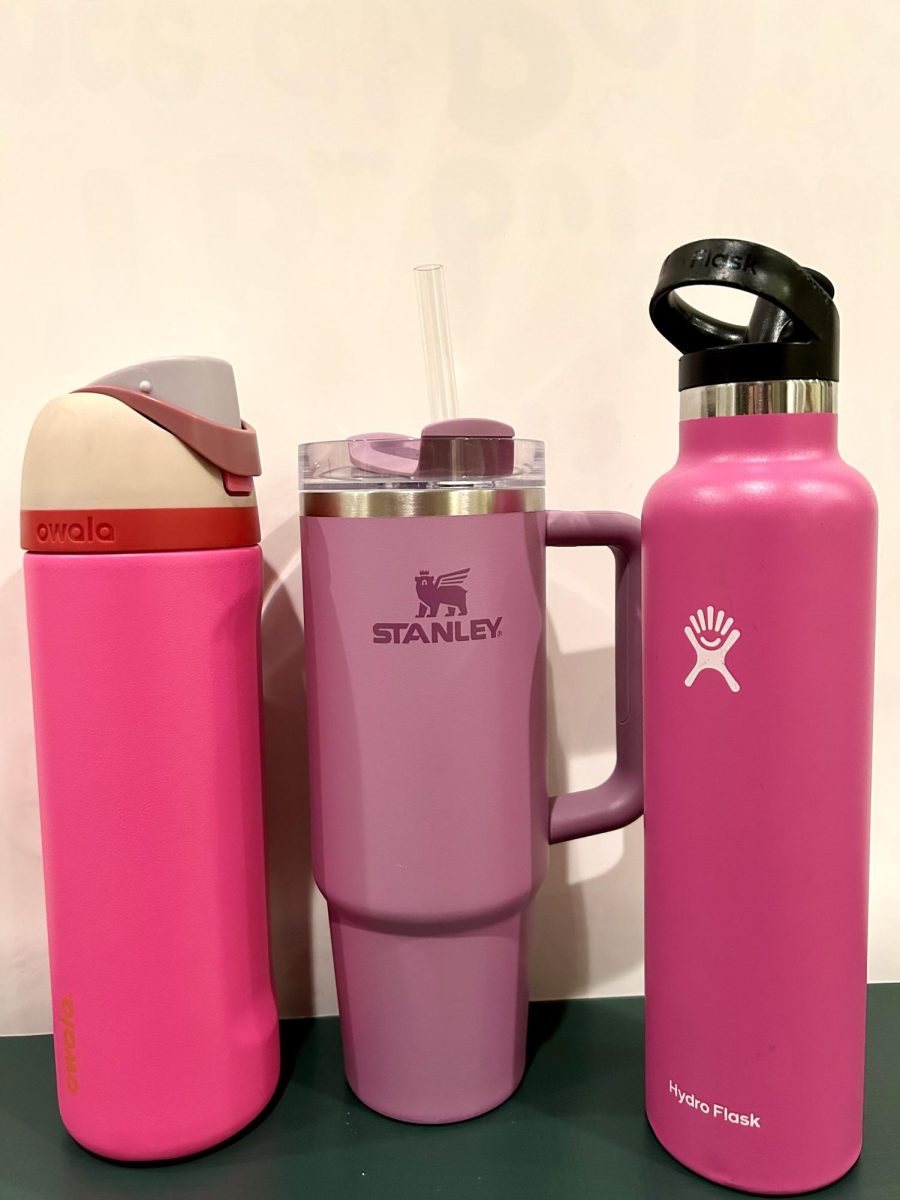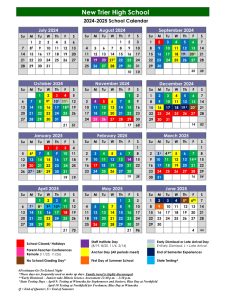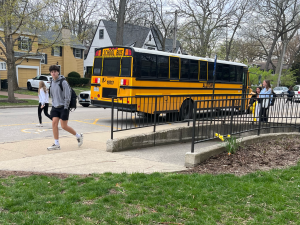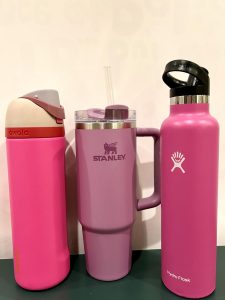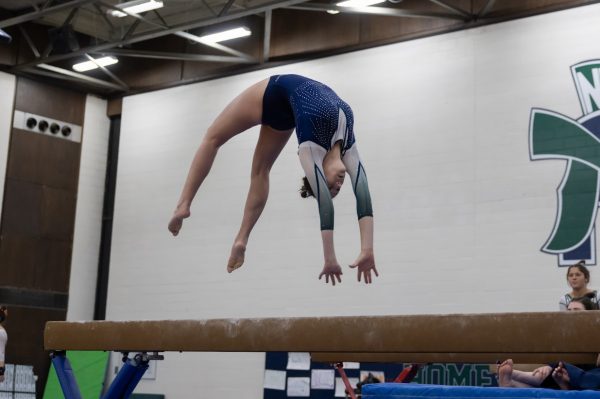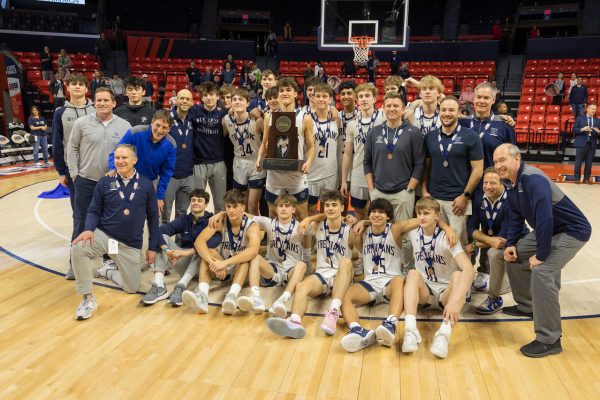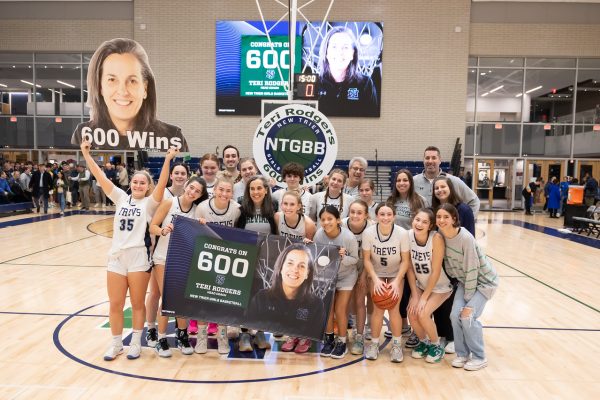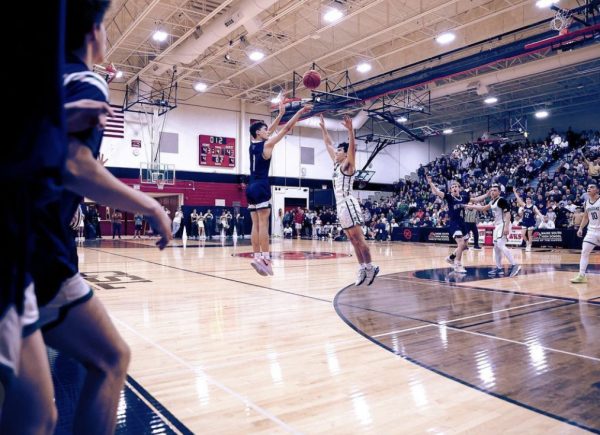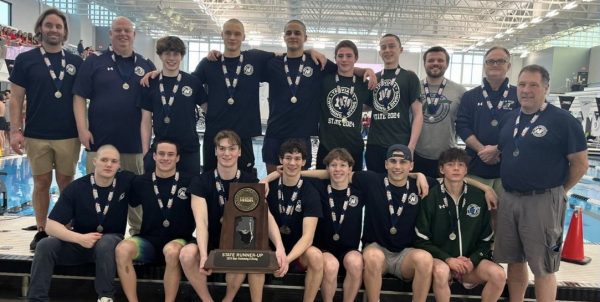Girls hockey contracted out of local ice times
Girls practice and play in Lincolnwood, far from North Shore
December 14, 2016
Senior Liza Boscow left her house at 8:30pm on a Saturday night, a large hockey bag slung over her shoulder. Boscow got into her car preparing for the 25 minute drive to Heartland Ice Arena, in Lincolnwood, for an hour long practice at 9:30 PM. During this drive, Boscow would pass the Winnetka Ice Arena, her local home rink, occupied by the New Trier Boys Blue Team.
Arriving at Heartland, the home rink of the Loyola High School Hockey Organization, she completes a practice with some of her teammates. Boscow does not return home until 11:20. A three hour trek for one hour of ice time. She and her teammates repeat this drive to Lincolnwood multiple times throughout the week, cutting into their social and school work time.
Since the New Trier Girls Hockey Organization’s creation in 1999, the organization has struggled to find ice time on the North Shore due in part to the tight competition for ice time from other clubs.
New Trier Girls Hockey Organization President Ned Forsberg said, “We have tried to get better ice time for the girls, but there just isn’t any ice time available.”
One of the biggest rivals for ice time is the New Trier Hockey Club, the hockey organization for New Trier boys. Since 1972 the hockey club has controlled most extra ice time at local rinks.
Sean Flynn, the Wilmette Ice Arena manager, said about the Hockey Club’s monopoly over extra local ice, “They’ve had it here forever. As far back as they go, you can look at our records, every Thursday at 9:45 PM New Trier Hockey was on the ice.”
The ice time for boys is also at late times with practices starting as late as 9:45 PM since younger kids get first priority in early ice slots.
But according to their calendars, almost every night, the Green, Blue and White teams will practice shooting, improve skating, and defeat rivals in front of home town audiences at one of three local rinks: Winnetka, North Shore Ice Arena, and Wilmette.
“I didn’t realize how different our practice schedules were for a bit, but it is kind of sucky to know that my team gets different opportunities.” Boscow said. “If I was a boy I’d hardly ever leave the North Shore to practice.”
New Trier Hockey Club President Robert Graves said “It’s not like the girls are left with the scraps.”
Graves added, “We do share and cooperate. We try to be as fair and equitable, but there are numerically more boys teams, so they need more ice time, not to diminish the girls at all. Ideally, we would love to see both boys and girls at Winnetka and Wilmette but ice time is harder to find and the boys have to hunt for ice too.”
The discrepancy in local ice time allotted to these two separate clubs is due to two factors: money and legacy. According to a parent, who had children in both the boys and girls organizations, the girls fees are significantly less.
“Yes, boys buy a lot more ice than the girls do because they have five teams. The rinks are more inclined to try to help them if other ice becomes available then they are to help us,” Forsberg said.
Yet according to Boscow, higher fees have never been offered to the girls team in exchange for closer ice locations. “They pay more money, that is just how it is, but we don’t really get the opportunity to pay more,” she said.
Isabelle Sennett, senior and captain of the girls varsity team, added, “the boy’s teams bring in more money.”
Despite the increase in buying power by the boy’s teams, their control over ice slots at local rinks stems farther than their wallets. Ice contracts is a policy that guarantees the same ice slots year after year and allow the Hockey Club to maintain their local ice times even if there was competition in price.
Forsberg explained, “We have ice contracts and essentially once you have an ice contract you just keep the same times forever.”
Sean Flynn, the Wilmette Ice Arena Manager, expanded on these ice contracts, “The park board has developed a policy on what’s called the right of first refusal. If you had the ice time in the past you get that ice time the following year unless you choose to not take it. In that case, I have the freedom to sell ice time to others as I see fit.”
Flynn added how rare it is to see an organization give up their ice time. “I have been here for five years managing this facility, and nobody has turned back any ice time in those five years, and that’s unfortunate. I have got emails from Ned Forsberg here, I have got an NT girls file that goes back all the way to 2012. We want to try and get them here. They are first on my list if something happens, but we just haven’t had that opportunity yet.”
Flynn continued: “The team is in this community. I think it really doesn’t make any sense for them to go to Lincolnwood, but I think finding a way to get this program to skate more in Winnetka or Wilmette would be a great thing. Even if its one slot a week, if it could happen I’d try and make it happen. I think it would be great for them to have the opportunity to play in front of their friends more.”
New Trier Hockey Club have held ice contracts at the local ice rinks since their beginning. And despite it being the 18th season of the New Trier girls hockey organization, not much has changed in their allotted ice slots.
“You would have thought that in 18 years, girls would have moved up the ladder, but nothing has changed; boys have added a team and now need ice for five teams,” a parent of a girl hockey player said.
Forsberg responded that the difference in ice locations is an economical issue and does not reflect the treatment of the girls team.
“It’s a business issue. Until someone else builds another rink in the area, which I hope they will, then maybe we will get some better ice, or until the boys decide to yield fewer teams.”
But Boscow disagrees, seeing the farther ice locations as a divide in treatment and the results in lesser crowds and overall opportunities between the boys and girl hockey organizations.
“The only difference between our programs should be that we’re girls and they’re boys.”

